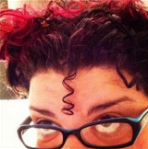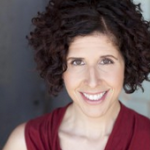Members of the Daily Post crew share some of their favorite editing tips (multi-colored pens: recommended).
Like most activities we subject to intense procrastination, editing our drafts is something we dread starting, but never regret once we’re done. To give you a push next time you’re staring at the screen, we’ve assembled a few time-tested editing tips straight from The Daily Post crew. Do try these at home!
Ben Huberman

My not-so-secret self-editing tip (I give it all the time) is to read your text out loud.
Your eyes will often gloss over awkward phrasing, missing punctuation, and poor word choices (to say nothing of basic typos). Your ears won’t; they’ll force you to stop.
I find this technique especially effective when you’re giving a completed draft its first read-through. You might be dying to hit the “Publish” button and call it a day, but your voice will force you to slow down a bit and zone in on any remaining problem spots. These might not be huge on their own, but cumulatively they can make solid writing feel sloppy.
Erica Varlese

My self-editing tip? Let it rest.
A good night’s sleep, or even an hour away from the computer, clears my brain, letting me come back to my writing with a fresh perspective. If you re-read your work immediately after writing it, it can feel repetitive and the words may not fully sink in, making it easy to miss spelling errors, redundancies, and odd phrasings.
By letting your words rest and subsequently settle, it’s much easier to pretend you’re a new reader and pick up on improvements you wouldn’t have caught otherwise. At times, this tactic requires some extra planning, but it’s well worth it for the few extra tweaks you’ll pick up on.
Wendy Scott

Ben and Erica covered two of my favorite tips, but I’ll add this: don’t rely on spellcheck.
Spellcheck is fine to use as a first pass, but don’t assume that it will catch everything. Spellchecking tools generally have a hard time identifying misspelled homophones (for example, here and hear, or there and their) and commonly misused words like affect and effect.
Spellcheck isn’t always reliable in picking up on grammar errors, either, such as misplaced modifiers, run-on sentences, or subject-verb agreement. Finally, spellcheck usually doesn’t flag typos if they are correctly spelled words. For example, I can type “park the care” and spellcheck thinks that’s fine when it really should be “park the car.”
The bottom line is that spellcheck can help, but there’s no substitute for putting your own eyes on your writing to spot and correct errors.
Krista Stevens

Get a trusted reader. Joan Didion and John Gregory Dunne shared work with one another at the end of the writing day. William Whitehead read Timothy Findley’s work aloud each evening, over a glass of wine. If Whitehead stumbled over a passage, Findley knew readers would, too.
Your trusted reader is someone who will help you identify clunky writing, muddled constructions, and hazy thinking. They’ll gently call you on being pompous and verbose; they’ll be your loving accessory to murder as you kill off your darlings. They’re your writerly soft place to fall, that person who reads your hideous, misshapen first draft and sees that first draft for the shining piece of writing it will be, not the ugly, half-formed, drooling creature it is now.
Michelle Weber

My editing secret is to go old-school: it might seem counterintuitive for a blogger, but when in doubt, print it out.
(I’m not sure if I’m offering useful advice here, or just showing my age!)
Reading my work on paper has lots of benefits for me. On a nitty-gritty level, it’s easier to spot typos when I’ve got a physical red pen and can scrawl on a piece of paper. On a broader level, seeing my whole post at once helps me evaluate it as a complete piece of writing in a way that is more difficult when I’m viewing words on screen, a few paragraphs at a time. When I can consider the entirety of a post, it’s easier to step back and see where there are holes and to evaluate the overall flow. If I’m feeling especially stuck, I might even cut the paper up so I can shuffle the paragraphs around and see how they read in a different order.
A witty turn of phrase doesn’t mean much if the whole post doesn’t hang together. There’s no better way for me to make sure it does than seeing every word arrayed before me.
Also, what Erica said.
Andrea Badgley

Wield the red pen.
I like to touch my writing. When I’ve got a draft ready, I print it out on paper and use multi-colored pens for down-and-dirty, nitty-gritty editing.
If I am writing a descriptive piece, I select five different colors of fine-tipped markers to mark sense words. For example, I’ll circle sight words in blue (balloon), audio words in green (pop), smell words in yellow (smoke), touch words in red (scald), and taste words in orange (oily). When I’m finished, I can glance at the page and see the distribution of colors. If the piece is awash in blue, I’ll know I’ve focused disproportionately on sight words. If I see no green or red, I’ll know I need to add sound and texture to pull the reader into the scene.
Colored pens work for sentence variation as well. I might circle all terminal punctuation for a quick glance at sentence lengths, or underline fragments in pink, simple sentences in yellow, and compound sentences in turquoise. If I see all long sentences, or see no pink or yellow on the page, I’ll make sure to pop in a fragment or a simple sentence to add punch.
Elizabeth Urello

If it’s an important piece of writing, I’ll sometimes write it again from scratch. This is especially helpful if you know there are sections that need to be revised, but you feel like it’s “finished” and are having a hard time editing it.
If you pretend you lost your original piece and write it all over again, the stuff that’s still in it is probably genuinely important. The stuff you forgot or left out? Probably didn’t need that anyway. And if you don’t like your rewrite, well, you still have the original, so no harm done.
Robyn Okrant

My colleagues have awesome ideas. I’m going to steal piggyback on one of them: I read everything out loud when I edit, just as Ben has suggested.
If I cringe when I hear my own work, if I’m rambling and don’t have a consistent tone, or wonder why my ideas don’t seem cohesive, I imagine I’m reading the text to a specific person.
It’s important to pick the right audience: my mom is an awesome imaginary audience for humor, wordplay, and clever dialogue. If I am attempting concise, persuasive language, I visualize a particularly tough professor I had in college. Finally, if I want an angry diatribe to sound focused and biting, I pretend I’m face-to-face with Kris, a girl who bullied me in elementary school. Seriously, she was awful. Sure, therapy might help, but why get rid of that resentment when she is such a great editing tool?
What’s the best editing tip you’ve ever received? How do you go about the self-editing process? Let us know in the comments!
Currently blogless? You’re a click away from sharing your story.
Create your blog at WordPress.com
Reading out loud in a library is not permitted.
LikeLike